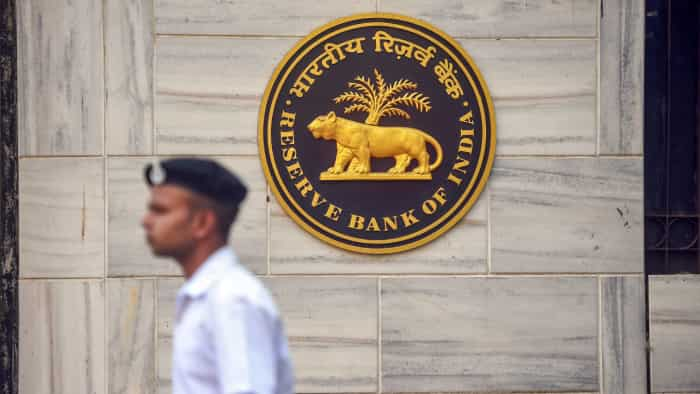Tax Saving Strategy: How to pay 0 income tax on Rs 12 lakh annual salary? Know through expert calculation
The last date to invest to save income tax is March 31, 2024. From April 1, the new financial year will start and investments you make from that date will be counted in the next financial year's tax. A salaried individual pays tax on salary, interest, dividend, income from rent, etc. If you are from the old tax regime, you get tax rebate of up to Rs 1.50 lakh in a financial year under Section 80C of the Income Tax Act. But, when you reach a higher income bracket, you sometimes fall short of tax saving options. However, even if your annual gross salary is Rs 12 lakh, you may end up paying zero income tax. Through expert calculation, know how it is possible.
)
Tax Saving Tips: The current financial year will end on March 31 and the new will start from April. So, you have less than a week to invest in tax saving schemes. Salaried individuals who have opted for the old tax regime can avail of many tax saving options mentioned in Section 80C of the Income Tax Act. Some of these options are life insurance policies, contributions to EPF, PPF, and NPS. For salaried individuals in the lower salary bracket, managing income tax is not a big problem as with little investments, they can save their income tax. But once you cross the Rs 10 lakh per annum salary bracket, saving tax becomes an uphill task.
The best way to save tax is to have self-knowledge of tax saving tactics, or taking a consultant's view. However, through expert calculations, we will tell you a strategy where you can take your income tax to zero even if your monthly gross salary is Rs 1 lakh, or Rs 12 lakh per annum.
Before we reveal the strategy, the basic concept that you need to keep in your mind is that you have to make investments or claim deductions in a way that bring your annual taxable income below Rs 5 lakh.
Tax expert view/calculations
Aastha Dhowan, Partner, Direct Tax, N.A. Shah Associates, said, "Employees need to efficiently utilise the available deductions and exemptions under the IT Act in order to bring their taxable income below Rs. 5,00,000/- (by opting for the old tax regime), so that there is no tax after considering rebate u/s 87A up to Rs. 12,500/-."
Dhowan gives a list of general deductions available to salaried employees under the old tax regime (we assume here that their income from other sources is NIL):
1. A standard deduction of Rs. 50,000 under Section 16 of the Income Tax Act.
2. Deduction under Section 80C of the IT Act of up to Rs. 1,50,000 towards payments made to Life Insurance Premium, National Savings Certificate, Provident Fund, Children’s School fees, Housing Loan Principal, etc.
3. Deduction under Section 80CCD (1B) of the IT Act of Rs. 50,000 on contribution to the National Pension Scheme notified by the Central Government.
4. Deduction under Section 80D of the IT Act up to Rs. 25,000 towards payments made to medical insurance premium for self, spouse, and children. In addition to it, Rs. 50,000 can be claimed in respect of the medical insurance premium paid for senior citizen parents.
5. Deduction under Section 24(b) of the IT Act with regards to interest on housing loans up to Rs. 2,00,000 per year.
Along with the above-mentioned aspects, other exemptions such as HRA, LTA, children’s education allowance, meal allowance, reimbursement towards mobile bills, etc., are also available to employees selecting the old tax regime, depending on the component of their salary structure.
How to pay a zero income tax on Rs 12 lakh salary
Since by now, you know various tax saving options, the most important question is how you can utilise these options to bring your income tax to zero after a Rs 12 lakh annual gross salary.
The first thing that you can do is to contact your company's human resources (HR) department and request it to structure your salary in a tax-friendly way.
With that done, you need to make investments, claim HRA and Leave Travel Allowance (LTA), pay health insurance premiums, and take advantage of standard deductions and the tax rebate, get your telephone bill reimbursement to keep your salary below Rs 5 lakh post investments and claiming deductions.
Know how it can be done.
Tax expert strategy
At a Rs 12 gross salary lakh in a year, you ask the HR to structure it in such a way where HRA is Rs 3.60 lakh a year, your LTA is Rs 10,000, and reimbursements for phone bills is Rs 6,000 annually.
On a Rs 12 lakh gross salary, you will get a standard deduction of Rs 50,000 under Section 16; you can also claim exemption for profession tax of Rs 2500; HRA of Rs 3.60 lakh per annum under Section 10 (13A), and LTA of Rs 10,000 under Section 10 (5).
With these deductions, your taxable salary will come down to Rs 7,71,500.
At this stage, you should remember that you are yet to claim deductions of Rs 1.50 lakh under Section 80C.
If you have paid premiums of LIC policies, or have invested in PPF, EPF, NPS, NSC, or you have paid your child's tuition fee, you can get a total deduction of Rs 1.50 lakh under Section 80C.
Central government employees or individuals who have invested in a Tier-1 plan of NPS can get a further deduction of Rs 50,000 under Section 80CCD.
After these two deductions (Rs 1.50 lakh+Rs 0.50 lakh= Rs 2 lakh), your taxable income will be Rs. 5,71,500.
Section 80D allows you to claim tax exemptions for the premiums paid on health insurance policies.
As per Section 80D rules, you can claim Rs 25,000 for yourself, your spouse, or your children's health insurance premium(s). Additionally, you can claim a Rs 50,000 exemption for the premium paid on your senior citizen parents' health policies.
With this Rs 75,000 deduction, your taxable income will come down to Rs 4,96,500.
With that income, you don't have to pay any tax.
Can taxpayers under new tax regime also get rebate?
Dhowan said that in order to pay zero tax, individuals under the new tax regime need to bring their income down up to Rs.7,00,000 after claiming a standard deduction of Rs. 50,000.
"Certain deductions and exemptions such as HRA, LTA, etc. are not available in the new tax regime. Salaried employees can claim deductions in respect of interest paid on housing loans up to Rs. 2,00,000/- in new tax regime," said Dhowan.
Get Latest Business News, Stock Market Updates and Videos; Check your tax outgo through Income Tax Calculator and save money through our Personal Finance coverage. Check Business Breaking News Live on Zee Business Twitter and Facebook. Subscribe on YouTube.
RECOMMENDED STORIES

Latest SBI Senior Citizens FD Rates: What will you get on maturity if you invest Rs 9,89,898, Rs 8,78,787, and Rs 6,56,565 in Amrit Vrishti, 1-, 3-, and 5-year FDs?

Power of Rs 15,000 SIP: How long it will take to achieve Rs 7 crore corpus? See calculations to know
03:54 PM IST










 Old vs New Tax Regime: Which tax regime you should choose on salaries above Rs 10 lakh, Rs 15 lakh, and Rs 20 lakh? Get expert calculations
Old vs New Tax Regime: Which tax regime you should choose on salaries above Rs 10 lakh, Rs 15 lakh, and Rs 20 lakh? Get expert calculations Investment schemes that provide monthly income and Section 80C tax benefits
Investment schemes that provide monthly income and Section 80C tax benefits Income Tax Season: How you can save tax by depositing money in your spouse's account; know the rule
Income Tax Season: How you can save tax by depositing money in your spouse's account; know the rule  Income Tax Season: Can you save income tax by paying rent to your spouse? Know how to save up to Rs 1,80,000 tax through it
Income Tax Season: Can you save income tax by paying rent to your spouse? Know how to save up to Rs 1,80,000 tax through it Want to save tax on earnings from FD? Know how Form 15G and Form 15H can help you
Want to save tax on earnings from FD? Know how Form 15G and Form 15H can help you